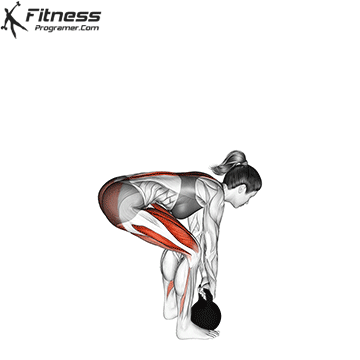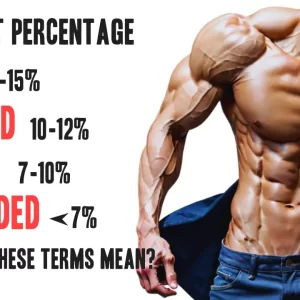Contents
Our children are growing up in a world where technology and sedentary lifestyles are the norm, leading to a decline in physical fitness among youth. Only 27% of high school students are active for 60 minutes daily. Introducing functional fitness for youth can change this trajectory. It focuses on building strength, flexibility, and coordination for real-world activities, preparing kids for everyday physical demands. Embracing functional fitness not only helps children stay active but also invests in their future, building a generation of strong, resilient, and confident young people.
What is Functional Fitness?
Functional fitness is a holistic approach to exercise that focuses on preparing the body for real-life activities. It emphasizes strength, flexibility, coordination, and cardiovascular health through multi-joint movements and functional cardio workouts. For youth, functional fitness is particularly beneficial as it lays the foundation for a lifetime of healthy movement patterns, reduces the risk of injury, and promotes core strength and stability.

Physical Benefits of Functional Fitness for Youth
Functional fitness offers a wealth of physical benefits for young people, setting the stage for a lifetime of health and wellness. Let’s explore how this innovative approach to fitness youth can transform the physical capabilities of our younger generation.
Strength and Mobility
One of the primary advantages of a well-designed youth fitness program is the significant improvement in strength and mobility. Unlike traditional youth weight training near me, functional fitness focuses on movements that mimic real-life activities, leading to more practical strength gains.
High-intensity functional training (HIFT) has been shown to improve muscle strength, power, and flexibility in athletes {1}. This means that young participants can expect substantial improvements in their overall physical capabilities. Functional fitness programs for youth emphasize exercises that enhance both strength and mobility simultaneously. For instance, squats combined with overhead presses not only build leg and shoulder strength but also improve hip and shoulder mobility. This comprehensive approach ensures that young people develop balanced, functional strength that serves them well in daily activities and sports.
Injury Prevention
One of functional fitness’s most crucial benefits for youth is its role in injury prevention. By focusing on proper movement patterns and body awareness, functional fitness helps young people develop a strong foundation that can protect them from injuries in sports and everyday life.
A key aspect of injury prevention in functional fitness is the emphasis on core strength and stability. Many youth workout routines incorporate exercises that target the core muscles, which are essential for maintaining good posture and balance. This increased core strength can help prevent back injuries and improve overall body control.
Moreover, functional fitness programs often include exercises that improve proprioception – the body’s ability to sense its position in space. This enhanced body awareness can significantly reduce the risk of falls and other accidents, especially in sports and high-impact activities.
Enhanced Sports Performance
For young athletes, functional fitness can be a game-changer. Research has shown that functional training significantly enhances speed, muscular strength, power, balance, and agility in athletes {2}. These improvements directly translate to better performance across a wide range of sports.
Plyometric and jump training programs, which are often incorporated into functional fitness routines, have been found to increase power, velocity, force development, and neuromuscular coordination in youth. These benefits are crucial for sports that require explosive movements, such as basketball, soccer, or track and field events.
The physical benefits of functional fitness for youth are far-reaching and profound. From building practical strength and mobility to preventing injuries and enhancing sports performance, this approach to fitness sets young people up for success in all areas of physical activity. By incorporating functional fitness into youth fitness programs, we’re not just helping kids stay active – we’re equipping them with the physical tools they need to thrive in sports, daily life, and beyond.
Mental and Emotional Benefits
While functional fitness for youth offers impressive physical benefits, its mental and emotional advantages are equally significant. This holistic approach to fitness doesn’t just sculpt the body; it also shapes the mind, fostering qualities that will serve young people well throughout their lives.
Confidence Building
One of the most profound mental benefits of functional fitness for youth is the boost in confidence it provides. As young people master new movements and overcome physical challenges, they develop a strong sense of self-efficacy—the belief in their ability to succeed. Mission Grit reinforces this by creating a supportive environment where children can progressively conquer new obstacles, building both their physical abilities and their confidence.
Functional fitness routines often include progressive challenges, allowing participants to set and achieve goals regularly. Each accomplishment, whether it’s performing a perfect squat or completing a challenging workout, reinforces a young person’s belief in their capabilities. This confidence extends beyond the gym, empowering youth to tackle academic, social, and personal challenges with a can-do attitude.
Moreover, the focus on functional movements that mimic real-life activities helps young people feel more capable in their daily lives. As they become stronger and more agile, everyday tasks become easier, further boosting their confidence and independence.
Resilience
Resilience – the ability to bounce back from setbacks and persevere in the face of challenges – is a crucial mental benefit of functional fitness for youth. The nature of functional fitness workouts, which often push participants out of their comfort zones, provides ample opportunities to develop this crucial life skill.
In functional fitness, failure is viewed as a stepping stone to success rather than a setback. When a young person struggles with a particular exercise or movement, they’re encouraged to keep trying, to modify the movement if necessary, and to celebrate minor improvements. This approach teaches youth that difficulties are not
insurmountable obstacles but challenges to be overcome with persistence and effort. The varied nature of functional fitness workouts also helps build mental flexibility. Young participants learn to adapt to different exercises and routines, developing the ability to think on their feet and adjust to new situations – a skill that’s invaluable in all areas of life.
Lifelong Impact of Functional Fitness
Functional fitness for youth offers lifelong benefits. It instills healthy habits, positive attitudes, and practical skills that they can adapt as they age. The mental and emotional skills developed through functional fitness are transferable and can help young people succeed in various areas of life. Additionally, it fosters a healthy relationship with exercise and body image and promotes social connections and a sense of community. Overall, functional fitness shapes not only bodies but also futures by equipping young people with the mental tools they need to navigate life’s challenges and maintain a healthy, active lifestyle.
Conclusion
Functional fitness for youth is more than just a workout trend – it’s a comprehensive approach to physical and mental development that can shape the future of our younger generation. By focusing on practical, real-world movements and challenges, functional fitness equips young people with the strength, mobility, and resilience they need to thrive in all aspects of life. Whether a child is an aspiring athlete or simply looking to improve their overall health, functional fitness can be tailored to meet their needs and goals. It’s an approach that celebrates progress over perfection, encouraging young people to push their limits while respecting their capabilities. In conclusion, functional fitness for youth is more than just a workout regimen – it’s a pathway to building skills that last a lifetime. It’s about creating strong, confident, and resilient young people who are ready to take on whatever challenges life may bring.



